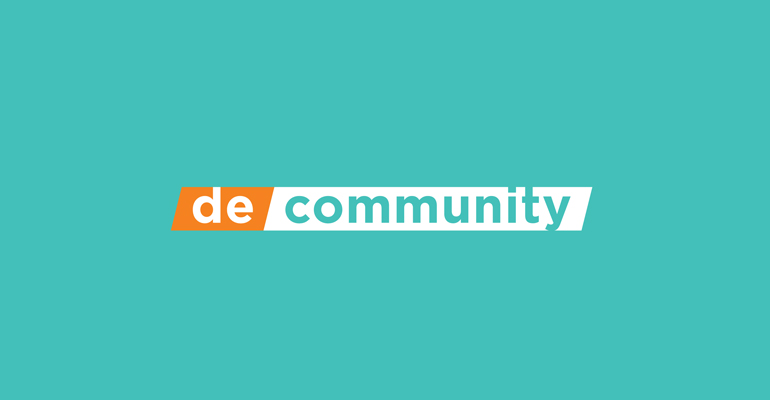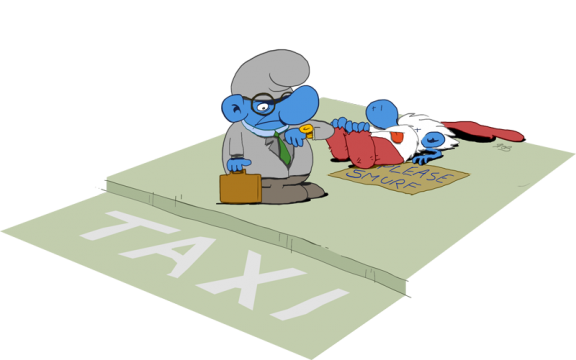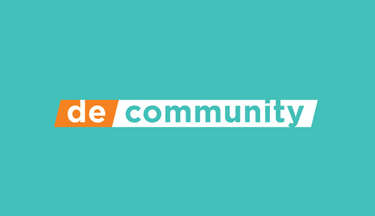Text: Paul Verhaeghe
Translated from Dutch: O.P.Roerkraeyer
On the evening of the National Strike Paul Verhaeghe, professor in psychotherapy, gave a lecture at Vooruit, the art center in Ghent. Verhaeghe asks poignant questions on the poison that is neoliberalism. How should we react? What are the alternatives? How can we make everything right again? And should we engage in austerity measures in order to support neoliberalism or, on the contrary, to act against it?
We do have to act, no doubt about it. However some questions prove harder to answer. In what way should we react? And react against who or what? Having questions like these means there’s a problem. First, I would like to give you my opinion on the problem after which I will return to the questions.
Not that long ago society was structured along the lines of at least four different fields, the political, religious, economic, and cultural fields with the political and religious ones the two dominant. Today these spheres of influence all seemed to have disappeared. Politicians are just material for comedians like Geert Hoste, we do well not to mention religion and everyone is an artist. There’s only one dominant discourse left and that’s the economic one.
Neoliberalism has invaded our identity in such a way it has managed to become invisible.
Nowadays we live in a neoliberal society in which everything and everyone has been reduced to a commodity. Moreover, this atrocity became linked with the idea of the so-called meritocracy. Every individual is responsible for his or her own success or failure. The myth of the self made man or woman. Whether you succeed or not depends entirely on yourself with the most important criteria being profit and money. As long as it’s lucrative is the message.
This compulsory neoliberal plea doesn’t limit itself to the economic realm but is ubiquitous throughout society in areas like health care, education, research, and even the media. However, that’s not where it ends. Neoliberalism has invaded our identity in such a way it has managed to become invisible. This is where the idea originates that this is the end of history. The idea that we reached the point where we think we can eliminate all other ideologies because neoliberalism emerged with a declaration of the human psyche. “That’s just the way people are”, it says. “People are naturally selfish and corrupt”. They will always look for their own benefit and satisfaction and are in constant competition with one another- survival of the fittest, selfish genes- that sort of thing.
A unified free market was supposed to present us with better products and services that are also cheaper. In reality this proved to be the exact opposite. This economic model is a complete fiasco.
Whoever disagrees with this thinking is called naïve and stupid. “Get real” is the ironic command. We can find that same irony in the so-called Real Politik, which creates the reality it pretends to draw from. In a similar move the last reality was destroyed in such a way it literally became unimaginable for the younger generation.
The Margaret Thatcher slogan: “ There is no such thing as society” became an increasingly convincing reality in the last thirty years.
It is important we realize this: the single most important product of neoliberalism is our reality. To summarize: it’s unethical, economically it’s a failure, it’s a disaster on a social level and on a psychological level it’s outright dangerous.
It’s a failure on an economic level despite the fact this is exactly the area where it’s supposed to work. I’m not an economist. As a layman I share the same experience as everyone else. A unified free market was supposed to present us with better products and services that are also cheaper. In reality this proved to be the exact opposite. This economic model is a complete fiasco. Research has shown a more egalitarian economy is not only more productive but also more efficient. The Rhineland model is far superior to the Anglo-Saxon, the latter being the cause of a spectacular increase in social inequality.
This brings us to the second point of my problem analysis: the disaster, which is neoliberalism, on a social level. Science has demonstrated this very convincingly. Take Great Britain for example, their level of income inequality increased so dramatically in the last thirty years their middle class is being wiped out. Sociological research from Wilkinson and Picket shows there’s a perfect correlation between the level of income inequality on one hand and on the other hand pretty much all of the significant health parameters. The bigger the income inequality in one region, the more mental illnesses, teenage pregnancies, child mortality, aggression, criminality, drug use and medication, and the lower the average life expectancy, physical health, school results, social mobility and, on a broader level, increasing feelings of less security and/or happiness.
Moreover- and this is surprising to most people- these results apply to all layers of the population and are not just limited to the lower class.
For those of you who might be under the impression this disastrous social evolution is in no way connected with income inequality but rather a consequence of the demise of religion and a lack of blue uniforms on the street I would like to refer to the numbers of the biggest police state and the most religious Western country in the world, the US. One look at their statistics should be enough to drop the idea we should follow their example. And still we remain mesmerized with that light box which shrouds everything else in darkness.
Neoliberalism is outright dangerous when we look at it from a psychological standpoint.
This leads us to my third point. Neoliberalism is outright dangerous when we look at it from a psychological standpoint. As a psychoanalyst this is my area of expertise and here I speak with authority. It is dangerous because it brings out the worst in people while suppressing the best. At first this was limited to the workplace but it has now permeated our educational system where it determines our new identity. The financial fights between the European countries illustrate what effect neoliberal meritocracy has on people. Solidarity becomes a precious luxury and has to make way for temporary coalitions where the main objective is ‘to get the most out of it’ at the expense of others. Establishing profound social ties becomes impossible because there’s hardly any emotional involvement with the job itself and none whatsoever with the company or organization. Bullying used to be a problem that only occurred in schools but it is now fully present in the workplace. It is the manifestation of a typical impotence symptom whereby the frustrations are displaced onto the weaker members. Deep down there is fear, ranging from performance anxiety to a broader social fear of the all too frightening other.
In a society whose message is “everyone can be successful as long as they put their mind to it”, it means more and more people are experiencing feelings of humiliation, guilt and shame.
According to labor sociologist Richard Sennett (Sennett, 2003, p.46; pp. 102-7), a downturn in autonomy and a growing dependency on external and also increasingly shifting standards are the cause of infantilization amongst employees. Grown ups throw childish temper tantrums, get jealous over nothing, tell little white lies, don’t turn their back on deception and harbor petty feelings of gloating and revenge. I would interpret this as the inevitable outcome of a system that doesn’t allow for autonomous thinking and working. When you treat somebody like a child there’s a pretty big chance this person will behave like a child.
More important is the core corrosion of our self-esteem and, according to thinkers such as Hegel and Lacan, the level of self-esteem depends on the amount of acknowledgement we receive. Sennett articulates the same sentiment when he has the modern-day employee pose the question: “who needs me?” (1998, p.146). For an increasing amount of people the answer is: “no one”. They are part of a growing group of waste material. In a society whose message is “everyone can be successful as long as they put their mind to it”, it means more and more people are experiencing feelings of humiliation, guilt and shame.
Our educational system plays a central role in this. Not that long ago education was mostly valued for its social relevance. The intention was to deliver highly educated citizens capable of critical thinking who, through their personal development, could contribute to a better society. This philosophy sounds incredibly lame and old-fashioned today. Universities are, after all, straightforward knowledge factories meant to mold highly competent and special-skilled students who can be moved directly into a specific industry. In order to facilitate this some prominent business leaders and politicians delivered very specific proposals during the crisis of 2011: increase the registration fee for all courses that don’t directly connect to business, reduce it for anything that will be profitable. In case somebody doesn’t want to adjust and still chooses to sign up for unprofitable training they should be penalized with a shorter time in benefits or no benefits at all. The icing on the cake was the proposal that infants should be screened for their skills so they immediately can be steered into the right economic business. The Flemish writer Marc Reugebrink brought these ideas up again in a critical article with an ironic date of publication, the Day of the Holy Innocents (The Standard, December 28, 2011), a day which celebrates the memory of the slaughter and sacrifice of small children. The following week he was reprimanded by an editor of the same newspaper: “liberal arts contribute nothing, liberals would do better reading Darwin and there is nothing wrong with Neoliberalism.”
The link with neoliberalism becomes abundantly clear in everyday phrases such as: “knowledge is human capital”, “skills constitute a capital that must be managed and developed”, and “studying is a long-term investment”.
It makes me shudder to know that these proposals were formulated by people-in-power. This must be the way it all started in the 1930’s. The fact that there’s hardly any objection or protest – I haven’t heard any reaction from any rector whatsoever – requires explanation. What has happened to our critical sense? My answer is that this way of thinking is now part of our identity – the neoliberal reality show not only dictates our every day life but also our education. Unconsciously we think in a neoliberal way and we pass this onto our children. Then why are we outraged when European research indicates our students exhibit very poor democratic and societal attitudes (ICCS report)? We prefer not to acknowledge the fact that these are the effects of our competency-oriented education.
Again we must turn to history and learn. One of the lessons of the twentieth century is that every dictatorship seizes the opportunity to use education as a tool to indoctrinate children with ideas that will inevitably lead to a bunch of misery and will hamper their development into critical, independent thinking people. As a result of this observation more and more voices were raised in favor of schools that are free of values. This immediately became one of the main applications of Isaiah Berlin’s ideas on negative freedom. People don’t need to be told what to think, any kind of indoctrination is deprivation of liberty, and especially education should not be subjected to this.
The competence model has found a fertile soil in this pedagogical vacuum (for a nice overview, see Masschelein and Simons, 2007). The initial objectives were noble: we need to teach skills that will be important in working life so young people will have the chance to make it and pave their way, not bothered by the distractions of religion and ideology. In a very short time we noticed an important shift from practical skills (e.g. language) to personality characteristics (flexibility), and finally to the personality as such (the man as the manager of one’s own life). The link with neoliberalism becomes abundantly clear in everyday phrases such as: “knowledge is human capital”, “skills constitute a capital that must be managed and developed”, “studying is a long-term investment”, etc…
The objective is called self-management and entrepreneurship. Young people need to see themselves as a company in which knowledge and skills serve an economic interest with which they can increase their market value. In other words, this competence-oriented education has implemented explicitly the ideological ideas of neoliberalism into the schooling of our children. It shouldn’t then come as a surprise when their first question is: “what’s in it for me”? That is of course the logical outcome of this education. To go whining afterwards about the selfishness and materialism of our youth is a little hypocritical to say the least. We urgently need to rethink this kind of education and its associated pedagogics. This new identity (man as entrepreneur) is also adorned with a new life goal, namely success. Young adults wish each other “success” when they say goodbye. Success with your exams, success on holidays, success in relationships, success in the workplace. In this context, the question of what constitutes a good life sounds lame – good life? The new standard is efficiency, the goal material gain and the associated virtue greed. In this line of reasoning, there’s no ethical difference between the bankers who consciously talked people into buying ‘toxic’ assets, the British parliamentarians who filed falsified expense reports, and the young people who plundered the malls in London with the slogan “If you can not make it, take it ‘. Ecce Home, this is man- the way he was designed.
The inevitable downside of this is a growing group of people who feel they have failed, even from the age of ten. Loser! Is the primary insult on the elementary school playground these days. Some of those losers revolt but most of them become socially anxious, autistic, depressed, and they usually end up hyper consuming. They are already calling for “early detection” – the word alone – with the main argument being that intervention in toddlers is economically more profitable. Last week (January 21, 2012) we could read in the newspaper suicide is costing Flanders an estimate of six hundred million Euro per year and this would pose a serious threat to the economy. How sick must we be as a society to express suicide in economic terms? What degree of blindness is required to not realize things are reversed: the level to which a sheer economic driven society is live-able can be measured by the number of dropouts with suicide as the ultimate form?
Last century strikes had an impact because there was a clear enemy: the patrons. Those have been replaced with rating agencies, stock exchanges and shareholders meetings.
This allows me to return to my two initial questions. How should we respond? To whom or what should we respond?
The Polish-British sociologist Bauman Zymunt summarizes the paradox of our time nicely: “Never were we so free. Never have we felt so helpless.” We are free in the sense that we can spit on religion (watch out with Islam and Judaism), sexually we are expected to try just about everything what was previously prohibited, and we can adhere to any political movement we want. That’s because none of this matters. It’s the economy, stupid!
Against whom or what we have to react is very unclear. Everyone complains about ‘the system’, but nobody knows what that means, hence our powerlessness and the subsequent “senseless” violence. Last century strikes had an impact because there was a clear enemy: the patrons. Those have been replaced with rating agencies, stock exchanges and shareholders meetings. From a psycho-analytical standpoint the current strike is nothing but self-mutilation. Like a patient, who has lost all grip on life and carves into his own flesh. Just like the unemployed educated youth in the French banlieues did when they destroyed their own neighborhoods. Tomorrow everything will go back to normal except that the patient will have become even more of a patient.
The key question is, how do we tackle this anonymous system? The magic word is austerity, the interpretation of which has different opinions. Austerity to save the economy, read, to keep neoliberalism alive, would be an expression of stupidity and unethical reasoning. Austerity to change the system on the other hand requires courage and insight.
First and foremost let’s examine this economically, on a macro-social level. My knowledge on the subject is limited but I’ve read that many experts are in agreement on the necessary measures to be taken. Savings banks should be completely separated from investment banks. Income tax should be as low as possible, tax on investment and speculation should be as high as possible. Reduce income inequality to normal proportions. Make sure corporations and their taxes are transparent. From my perspective and experience I would like to add the following: make education “Bildung” again with an explicit focus on ethics, carried by teachers with authority, and forget about the dragon of competition as fast as possible. Make the public health sector independent of the world-for-profit. Restore public space and invest in everything that promotes real social networking.
Austerity to save the economy, read, to keep neoliberalism alive, would be an expression of stupidity and unethical reasoning.
These kinds of decisions need to be taken on a political level preferably on a European scale. The above-mentioned experts also talk about a rotten political system that is incapable of making decisions and is looking for salvation in other places. There are no “other places”. This is what we need to work with. The current grey mice urgently need to be replaced with political parties from across the color-spectrum who each pushes their different ideologies in democratic competition with other ideologies. In that respect I stand with General de Gaulle: “La politique ne se fait pas à la corbeille”. The stock market has no business in politics and economics must be and always remain subordinate to society, not the other way around. Austerity is necessary, that much is clear. Here in the West we live far beyond our means but austerity measures must benefit the community not the economy. If you find this a surprising statement then I would say you should mostly be surprised about yourself.
Now, let’s talk about the individual level. The previous solutions are easy because they reflect an intimate conviction: the other is to blame I’m just a victim. Read: the other (the immigrant, the unemployed, the greedy banker, the ruthless manager) must change, and then everything will be better again. Unfortunately we don’t have the luxury of a clear enemy (whatever political party can find one and focus on that will have guaranteed success). In the absence of an enemy we flail around wildly only to retreat to a little corner in a depressed state. This behavior mirrors the state of the stock market, which either rises like with ADHD, or collapses in depression. Bipolar disorder – aka manic-depressive psychosis – is therefore a perfect match for neoliberalism. It’s the condition neoliberalism is suffering from.
In both cases, we’re convinced the cause is something outside of us, that there is a magic pill or maybe a new Führer who, without us lifting a finger, will cure our ailment and rescue us from evil. Not only is this not going to happen but we would be doing the exact same thing we accuse our politicians from. Like I stated earlier, we all became neoliberal, the enemy is in our thinking and behavior and it is especially there we must make the necessary steps for change.
Instead of consumers, we must become citizens again.
An important first step is to abandon the cynicism my generation is currently suffering from. It’s the cynicism with which we readily adopt neoliberal construction as exclusive truth. Yes indeed, selfishness, competitiveness, aggression are all human traits. The banality of evil is a reality. But altruism, the will to collaborate, solidarity- the banality of good- are human traits just the same. It is our environment, which determines what traits will become the more dominant ones and we decide what our environment will look like. On top of that, there is more than enough evidence we feel better when we mean something to another person and receive recognition and acknowledgement for it. Such feelings of happiness are in stark contrast with the typical mood of today, namely depressive Hedonia, depressive pleasure (an apt phrase from Mark Fisher).
A depressed person is often depressed by virtue of powerlessness: there’s nothing I can do, nothing helps, it is the fault of my genes, my unhappy childhood. Often, to some extent, this is true, but as a belief system it prevents change. A depressed patient can only climb out of his depression when he engages that other part, the part where he has decision-making power and where he carries ??a certain level of responsibility. The same applies to that depressed consumer we all have become these days.
Instead of consumers, we must become citizens again. If we want politics to serve public interest then we must stress this public interest instead of our own personal issues. And this also requires a strict austerity, which is to be accompanied by the development of a new set of ethics. New yes, because the return to the previous set is not only impossible but also undesirable. Finally, I would like to initiate this very thing inspired by Michel Foucault’s last lessons (2004).
This is diametrically opposed to the current glorification of limitless consuming and the obligation of growth. Self-care invariably comes down to moderation.
Contemporary ethics can best complement contemporary individualization with, as key concept, self-care. In light of what I just said, this must sound very strange. Aren’t individualization and extreme focus on self-care precisely the concepts how we got into this mess in the first place? This kind of reaction illustrates on what level neoliberalism has convinced us that self-care represents pure material self-interest and therefore it must automatically compete with the self-interest of others. Such conviction is actually the exact opposite of the true meaning of self-care because it ignores two central questions: what does “good life” mean for me? And how can I design this “good life” in relation to others? There’s a lot of different possible answers to these questions but every ethical system will have the same central element: the good life and its design in relation to others must be based on self-control.
This is diametrically opposed to the current glorification of limitless consuming and the obligation of growth. Self-care invariably comes down to moderation and courage, free of being a slave to one’s own body or slave to the other not to mention the contemporary requirement of depressive pleasure. On this level austerity means going for the good life. Such self-care leads to informed citizenship and an intertwining with the care for others. This in turn ensures a sense of meaning that can be shared with others which can lead to some sort of long overdue collective resistance. A collective civil disobedience movement against unethical rules will prove to be much more effective than a general strike, which will only strengthen the current system.
Sources
Berlin, I. (2010 [1958]). Twee opvattingen van vrijheid. Vertaling Tine Ausma, nawoord Hans Blokland. Amsterdam: Boom, Kleine klassieken.
Bauman, Z. (1999). In search of politics. Stanford: Stanford university press.
Fisher, M. (2009). Capitalist Realism. Is there no alternative? Winchester: Zero Books.
Foucault, M. (2004). Breekbare vrijheid. Teksten en interviews. Boom, Parrèsia.
Masschelein, J. & Simons, M. (2007). Competentiegericht onderwijs: voor wie? Over de ‘kapitalistische’ ethiek van het lerende individu. Ethische Perspectieven 17 (2007) 4, 398-421.
Sennett, R. (2003). Respect in a World of Inequality. New York, London, Norton company, pp. 1 – 288.
Sennett, R. (1998). The Corrosion of Character. The Personal Consequences of Work in the New Capitalism. New York, London, Norton Company, pp. 1 – 176.
Wilkinson, R. & Pickett, K. (2010). The Spirit Level. Why Equality is Better for Everyone. London, Pinguin books.
Professor Paul Verhaeghe is clinical psychologist and psycho-analyst at the University of Ghent. He is the author of the books ‘Het einde van de psychotherapie’ and ‘Identiteit’ (De Bezige Bij, 2012)
The English version of ‘Identiteit’ will be published by Australian publisher “Scribe” and distributed by “Faber” in the UK. The German version will be published by” Kunstman Verlag”.














